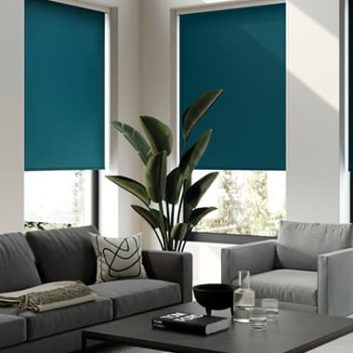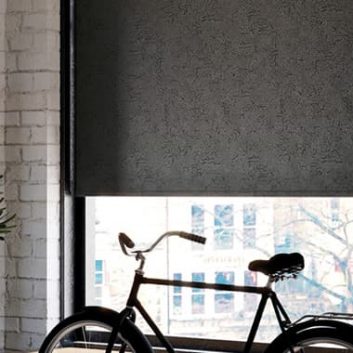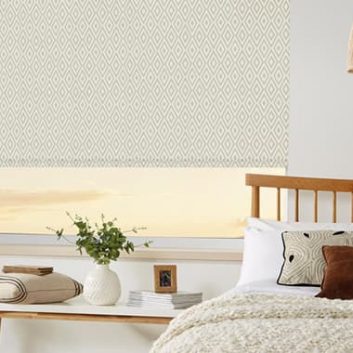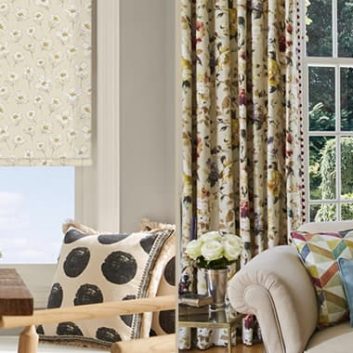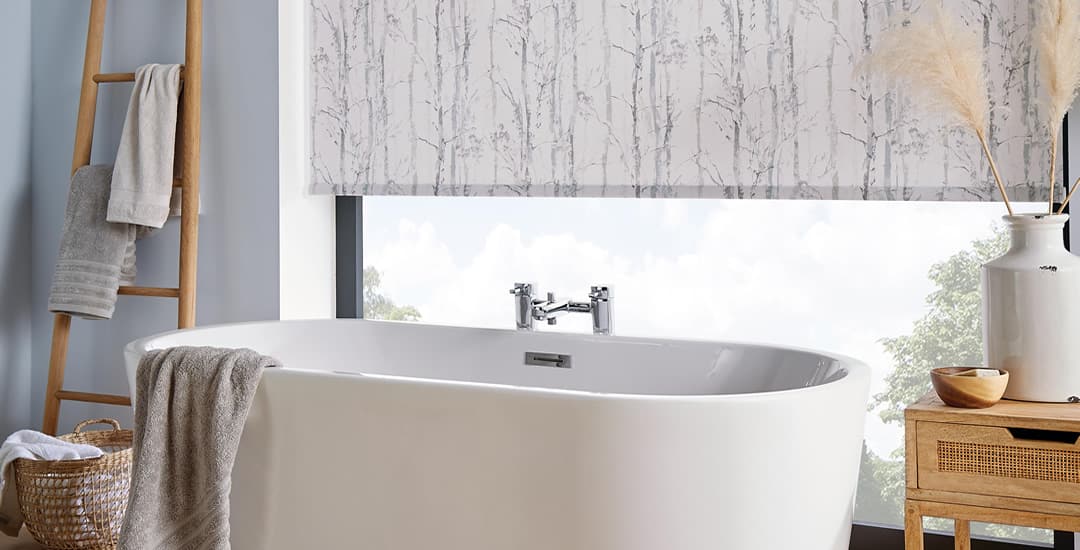
Not if you choose waterproof blinds that are designed for use in wet and humid environments like bathrooms; which in this instance means roller blinds made of either PVC or vinyl.
Be sure to choose genuinely waterproof blinds for bathrooms, and double-check that they’re made of either vinyl or PVC; some blinds retailers sell blinds that they call “water resistant” rather than properly waterproof, and this is a bit of a snide move, because blinds that aren’t fully waterproof may well, over time, grow mould.
Roller blinds can go mouldy and develop a film of mildew in time if they’re made of a non-waterproof fabric and exposed to bathroom steam and humidity; and this blog post will tell you everything you need to know about choosing the right roller blinds for a bathroom to ensure that they don’t start growing their own nasty little fur coat within a couple of years.
Why do roller blinds go mouldy in the bathroom?
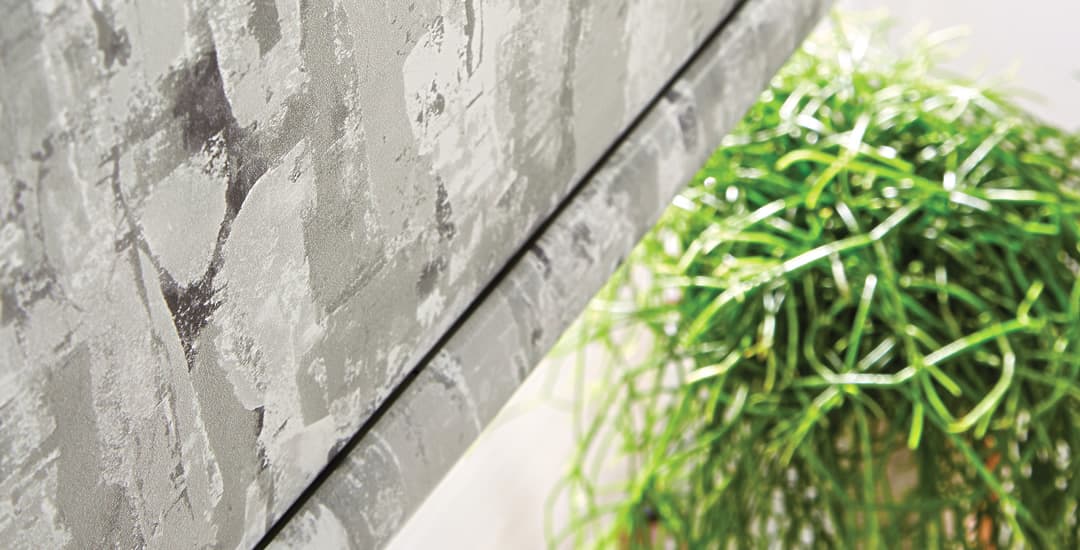
If you do find yourself the unlucky owner of a manky roller blind that’s playing host to an unwanted life form, wondering how this actually happened in the first place is valid. Basically, if you use a non-waterproof roller blind in a bathroom and it gets splashed or even just exposed to condensation/steam regularly, it’s going to get damp (even if this is barely noticeable) and eventually, start to harbour mildew and mould.
This will happen sooner rather than later if the blind never gets the chance to dry out fully (because the room is permanently damp, the blind gets soaked through, and/or it is opened so the wet fabric gets rolled up rather than aired out) but it will eventually happen to any non-waterproof roller blind used in a bathroom.
If you have a waterproof roller blind that’s growing mould… My first response to you in this situation is to tell you that you’re wrong mistaken, and argue heartily that it’s not; either not growing mould, or not waterproof respectively, because a waterproof blind should not in any world where the normal rules of science apply, grow mould.
However, I argued this very point on one occasion and was wrong; possibly the only time in my life that I have admitted to being wrong I have been wrong.
What had happened there was that the blind had got spattered with a fresh face mask from a popular skincare/bath products retailer than prides itself on making stuff from organic ingredients and not chemicalising everything to death to preserve it… Which the blind’s owner didn’t totally hate as a design feature and so, kind of left in situ rather than cleaning it off.
This, in time, began to grow mould, as mould can grow on organic matter even if said organic matter lives on a blind.
In the exact same way that spilled or dropped food will eventually grow mould even if dropped on a tiled floor, well, this is what happened with this blind/facemask paste, which I am told, contained basically the sort of ingredients more commonly associated with snacking than clearing your pores.
I’m not going to name the skincare retailer in question whose products are essentially in many cases pretty much edible due to their composition and lack of inorganic ingredients, because I’m pretty sure that “*** made a blind go mouldy in direct opposition to the laws of physics” isn’t something they’d be good with having appear on Google as a search result for their brand.
But if you know, you know.
Do roller blinds go mouldy in the bathroom if they’re waterproof blinds?
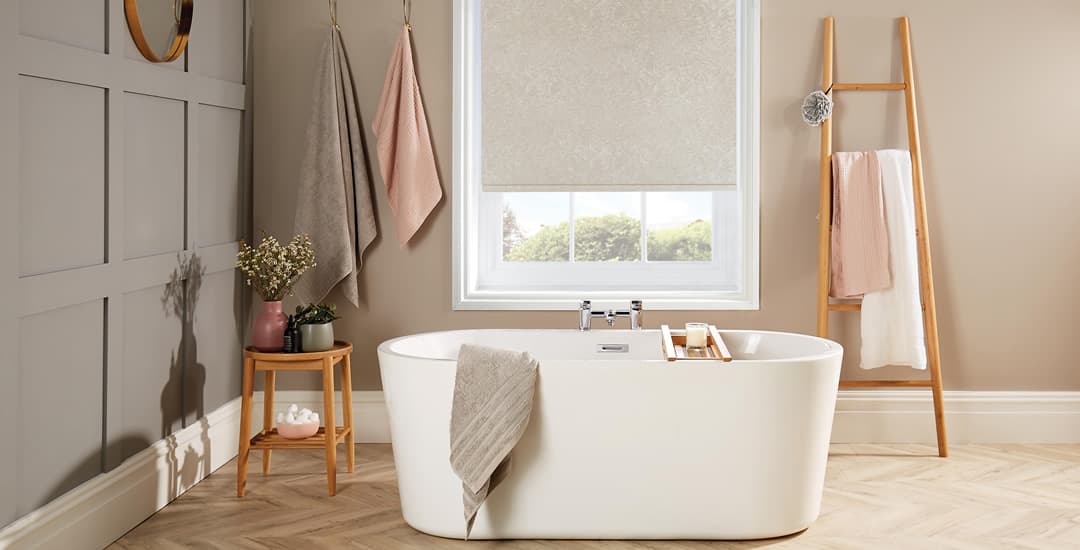
No, apart from as I mentioned at some length above, if something organic ended up on the blind for long enough to allow stuff to sprout from it.
If you choose waterproof roller blinds, being, those made of either PVC or vinyl, these will not go mouldy in the bathroom. No, not even if your bathroom walls literally drip with moisture after a shower, or your other half, despite direct instructions to the contrary, left your four-year-old unsupervised in the bath with a water cannon every day for a year.
Do bathroom blinds go mouldy if they’re made of polyester or polycotton?
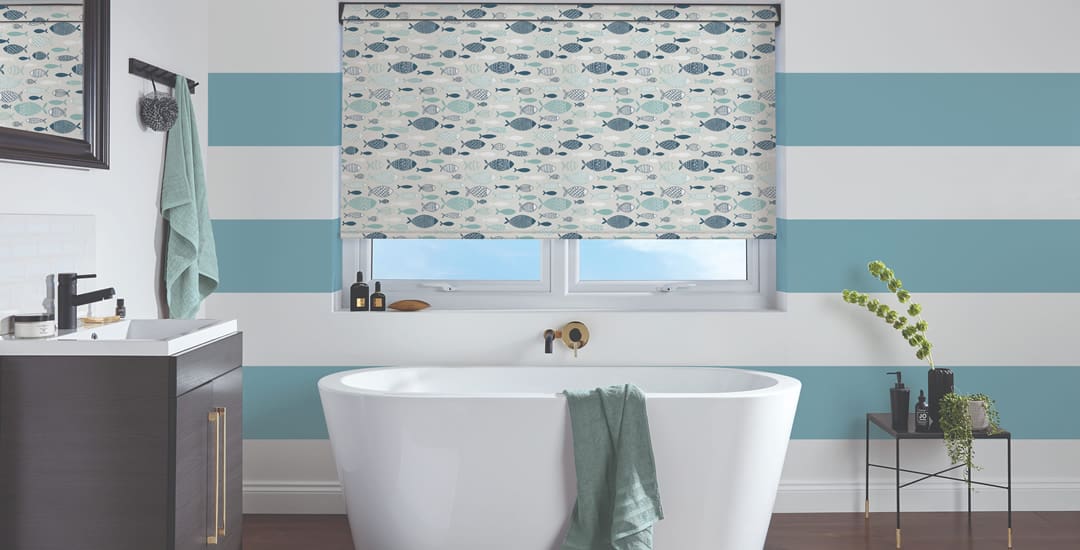
Yes, because these aren’t waterproof fabrics. Eventually mould is going to be an issue that any fabric/porous roller blind will succumb to.
It may take a couple of years but could well be faster if the blind is perma-damp and/or rolled up when wet, but a fabric roller blind is apt to host mould and mildew in the end.
Most non-waterproof roller blinds are made of polyester and a small number are made of polycotton; both of which are good with sharing their space with mould and mildew, even if you’re not.
Is a polyester blind good for bathrooms?
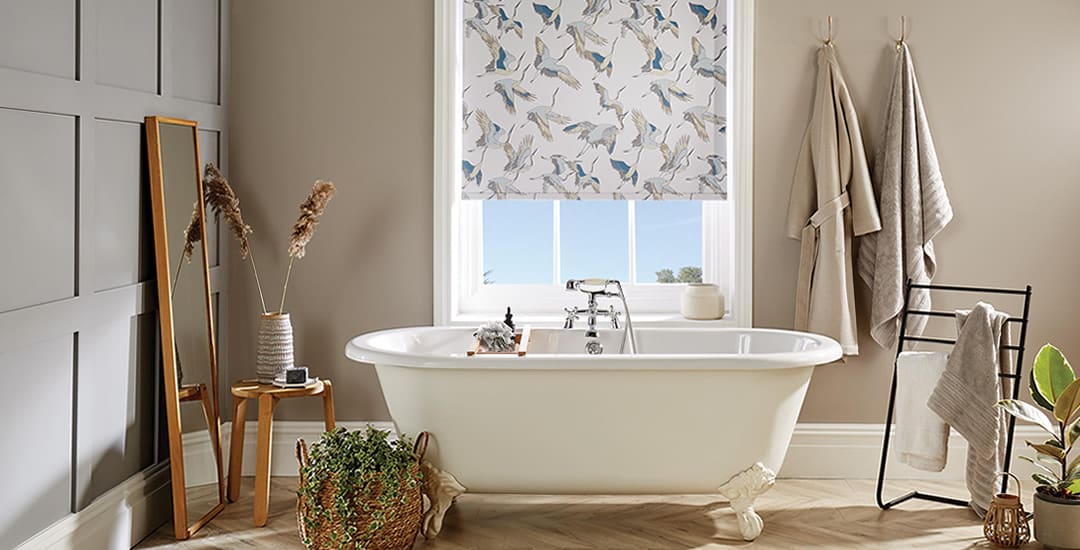
No, because polyester roller blinds aren’t waterproof and will eventually end up mouldy-mildew-y in the humid environment of most bathrooms.
Occasionally in bathrooms that are huge/high ceilinged and that have ventilation aggressive enough to make your hair stand on end you might get away with it, but for most bathrooms, you will not.
Do roller blinds go mouldy in the bathroom eventually regardless of type?
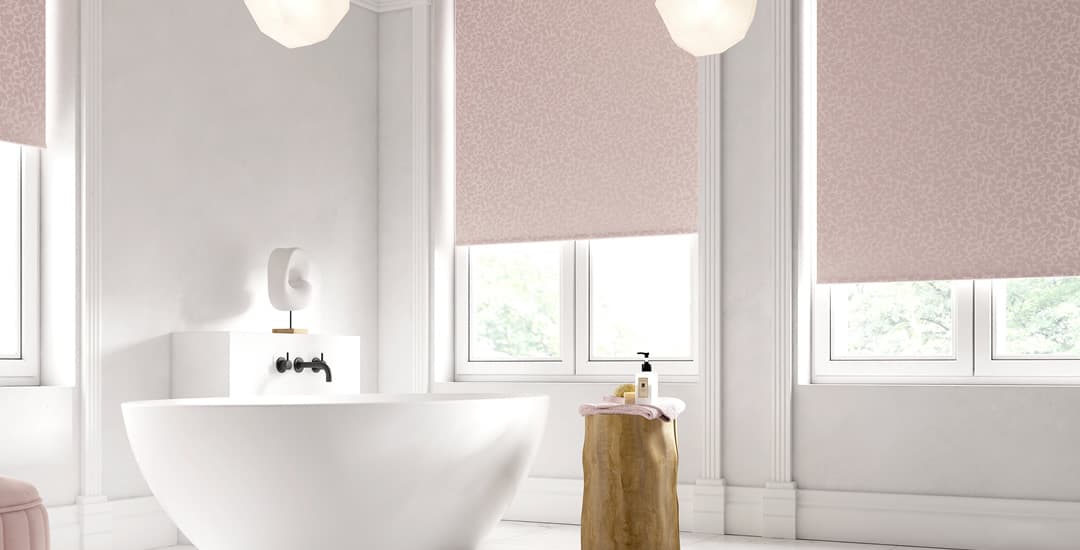
Not if they’re waterproof, no.
As I mention, if you use a lot of food-based or organic/unpreserved skincare stuff and/or make your own stuff out of things like egg whites and coffee grounds (this latter was quite the thing for a while, until we learnt how good coffee grounds are at gumming up plugholes) and these splatter your blinds and you don’t clean it off, it may grow mould.
But, unless you are the type that is prone to spilling food and just… Leaving it to do its own thing – in which case, mouldy roller blinds probably won’t bother you too much in the greater scheme of things anyway – then no.

